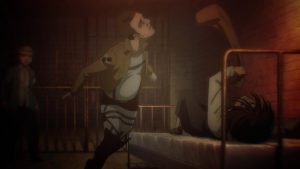 It’s a high bar, but Gabi has definitely emerged as Shingeki no Kyoujin’s most annoying character. She makes early Eren seem restrained and dignified. It’s like the series has its very own Zenitsu. In point of fact it’s worse, because Gabi isn’t simply annoying – she’s literally awful. Awful as a person, awful as a symbol, awful as a character. And whether she ends up being used in some sort of high-school literary club redemption storyline or just made an example of, she’ll still have been awful.
It’s a high bar, but Gabi has definitely emerged as Shingeki no Kyoujin’s most annoying character. She makes early Eren seem restrained and dignified. It’s like the series has its very own Zenitsu. In point of fact it’s worse, because Gabi isn’t simply annoying – she’s literally awful. Awful as a person, awful as a symbol, awful as a character. And whether she ends up being used in some sort of high-school literary club redemption storyline or just made an example of, she’ll still have been awful.
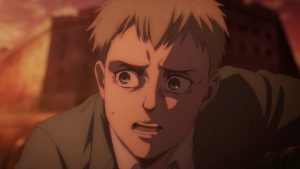 Characters like Gabi and Eren really frustrate me, because they undercut whatever point Isayama is trying to make with this story. And that’s already severely undercut by his decision to make the Eldians the Jews of Europe, since “Yeah, you’re guilty of a blood libel and probably Devil-spawn but that was a long time ago, and there are some good ones too” doesn’t count as enlightened perspective (though Isayama seems to believe it does, by all appearances). He’s his own worst enemy as a writer, and that’s always a brutally difficult hurdle to overcome.
Characters like Gabi and Eren really frustrate me, because they undercut whatever point Isayama is trying to make with this story. And that’s already severely undercut by his decision to make the Eldians the Jews of Europe, since “Yeah, you’re guilty of a blood libel and probably Devil-spawn but that was a long time ago, and there are some good ones too” doesn’t count as enlightened perspective (though Isayama seems to believe it does, by all appearances). He’s his own worst enemy as a writer, and that’s always a brutally difficult hurdle to overcome.
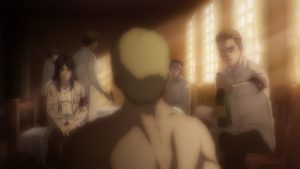 If Isayama had chosen to use a mirror rather than Carroll’s looking glass he could have formulated a very interesting moral dilemma here, because there were plenty of countries that committed actual atrocities during the period he’s obsessed with and still struggle with the aftermath of that, most notably his own. “The son shall not bear the iniquity of the father” is well worth exploring, as Isayama tries to do in this episode, but he trips over his own feet so much that it’s hard to focus on the actual point. And Gabi’s incessant shrilling doesn’t help matters either.
If Isayama had chosen to use a mirror rather than Carroll’s looking glass he could have formulated a very interesting moral dilemma here, because there were plenty of countries that committed actual atrocities during the period he’s obsessed with and still struggle with the aftermath of that, most notably his own. “The son shall not bear the iniquity of the father” is well worth exploring, as Isayama tries to do in this episode, but he trips over his own feet so much that it’s hard to focus on the actual point. And Gabi’s incessant shrilling doesn’t help matters either.
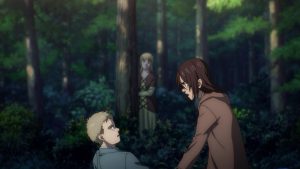 Gabi does play the self-hating victim to the hilt, I’ll give her that. And Falco’s innate common sense is genuine, a rare commodity in this cast and one that makes him stand out all the more. Falco is of course correct in defending Kaya, both physically and intellectually, from Gabi’s assaults. The problem is an allegorical one, because not only does Kaya have nothing to apologize for, but the people she represents haven’t either – not in the historical context presented here. That disconnect muddies the argument to the point that it loses most of its impact in the narrative.
Gabi does play the self-hating victim to the hilt, I’ll give her that. And Falco’s innate common sense is genuine, a rare commodity in this cast and one that makes him stand out all the more. Falco is of course correct in defending Kaya, both physically and intellectually, from Gabi’s assaults. The problem is an allegorical one, because not only does Kaya have nothing to apologize for, but the people she represents haven’t either – not in the historical context presented here. That disconnect muddies the argument to the point that it loses most of its impact in the narrative.
 As to the larger plot, it still feels as if we’re headed towards a mutual wipeout, with Eren acting as an Angel of Death bringing ultimate closure to a deserving world. He’s done a skillful job of backing his own side into a corner where they almost have no choice but to pursue his objectives or perish, and the enemy into launching an all-out attack that will justify him. If you were somehow able to set aside the misguided allegory it would be interesting to debate whether, in the universe presented here, Eren was right or wrong. Is there really no alternative to burning humanity to the ground and salting the Earth behind it?
As to the larger plot, it still feels as if we’re headed towards a mutual wipeout, with Eren acting as an Angel of Death bringing ultimate closure to a deserving world. He’s done a skillful job of backing his own side into a corner where they almost have no choice but to pursue his objectives or perish, and the enemy into launching an all-out attack that will justify him. If you were somehow able to set aside the misguided allegory it would be interesting to debate whether, in the universe presented here, Eren was right or wrong. Is there really no alternative to burning humanity to the ground and salting the Earth behind it?


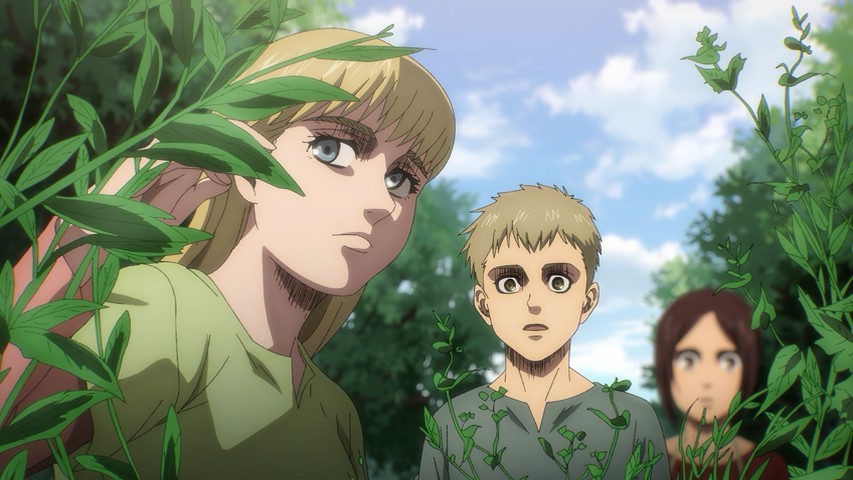

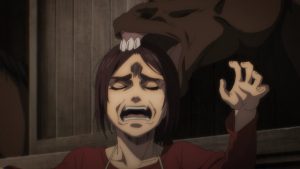
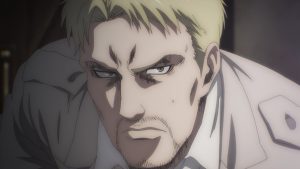
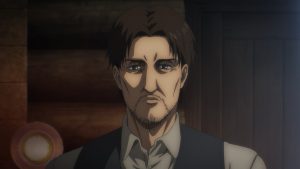
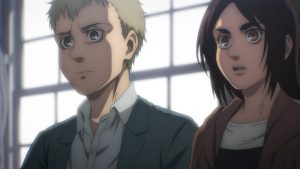
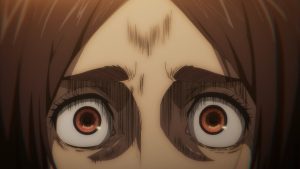
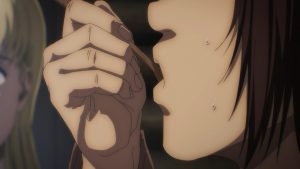
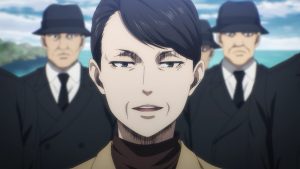
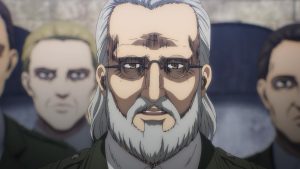

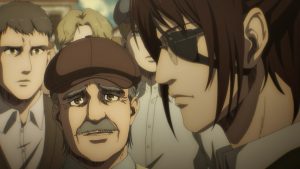
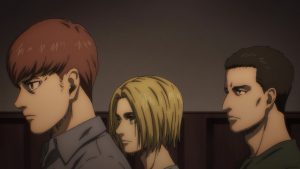
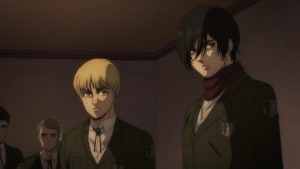
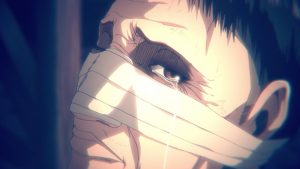
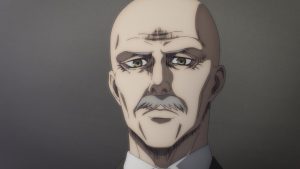
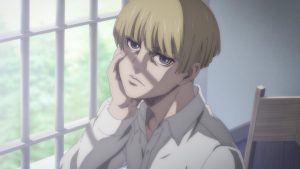
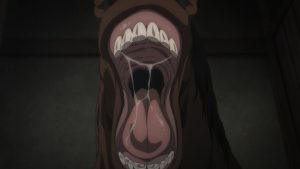



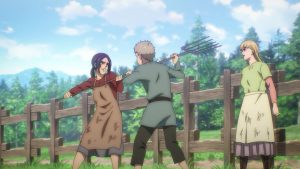

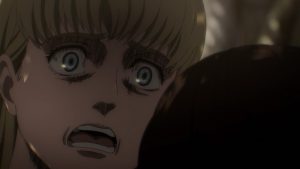
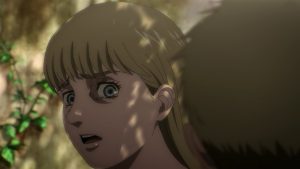
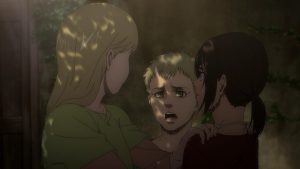
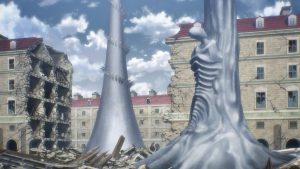
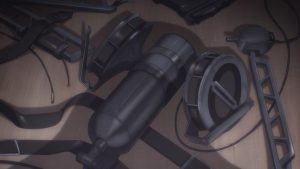

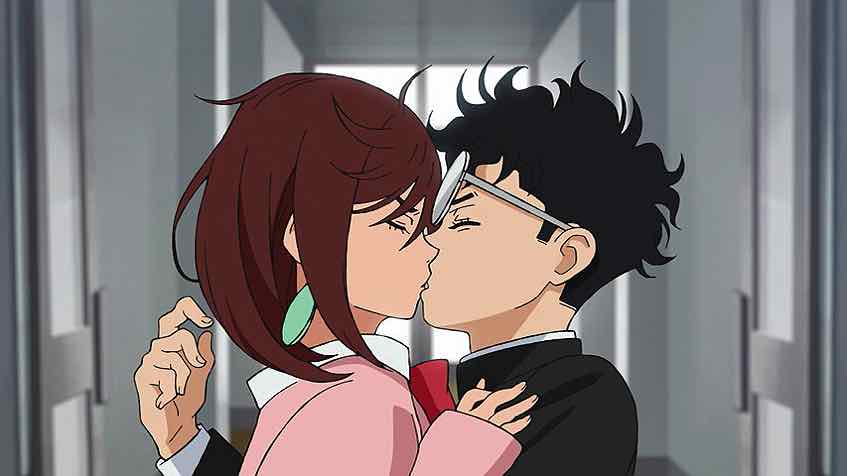
Miyu Fan
February 23, 2021 at 7:23 pmIn real life context, people just need to accept that both ‘current generation are blameless for the sins of the past’ and ‘the country still hasn’t done enough to properly compensate for its past sins’ can be true at the same time.
In AOT universe, no one is smelling of roses from both sides anyway so quite honestly Eren burning down everything might be the best choice at this point. Of course logically the best thing to do is to make the power of titan disappears forever, but I can’t see the story ending up that way.
blargnobia
February 25, 2021 at 3:55 pmThat’s what bothers me, though. It’s like Isayama deliberately constructed a hyper-cynical universe in which everyone is dumb, wrong, and irredeemable. If we accept that reconciliation between Elodians and Marley is impossible, (and this seems to be the case) then Eren is right to kill everyone. That’s the kind of end-justify-the-means nihilism that people invoke to justify war crimes.
This isn’t a perfect analogy, but it’s like Isa read “A Modest Proposal” and didn’t pick up on the irony.
Tim
February 23, 2021 at 8:52 pmI’m confused why you seem to be downplaying the Eldians = Jews comparison. Isn’t this an accurate parallel to be making in this kind of story? Marleyans acting like Nazis wanting all the ‘devils’ to be murdered. Why is reminding the audience of something horrific that’s happened in our own history, bad writing? Here, the Eldians have the power to fight back against their persecutors even to the point of being able to commit mass genocide themselves. If the Jews had such power to wipe out all the Nazi’s people might think that’d be justice. Here we can see this kind of moral dilemma played out in a fantasy story.
Guardian Enzo
February 23, 2021 at 9:56 pmTim, this is a piece which I think has some very interesting and balanced takes on the subject in much longer form than I’m going to go into in a website comment. Just as an additional perspective:
https://www.animefeminist.com/my-fave-is-problematic-attack-on-titan/
The problem, in a nutshell, is that Isayama blows every anti-Semitic dog whistle in the book. He portrays a group as obviously Jews, and then has them be guilty of every anti-Semitic lie and myth we’ve heard repeated by racists for most of recorded history. But because he’s saying “they’re not all bad” and “we shouldn’t hold them responsible for the evils committed by their ancestors” it’s supposed to be OK? It’s laughable – “Yeah, I’m saying they’re devil-spawn and guilty of blood libel, but since I’m also saying that was a long time ago and there are some good ones, it’s fine”.
The kicker is that none of this is necessary for the story he’s telling – he didn’t have to make the Eldians the Jews. So why do it? Only he knows the true answer, but Occam’s Razor is highly suggestive.
slazer
February 24, 2021 at 5:29 amAppreciate this article link! I think how Isayama wraps up his story will ultimately have a lot to say about what sort of stance he’s taking broadly, but at the very least, the Holocaust imagery is problematic and perplexing, even if not actively tone deaf and malicious.
Guardian Enzo
February 24, 2021 at 9:05 amAnd that’s the essence of it, to me. We can never know his intentions unless he chooses to reveal them, but he’s at the very least misstepped in opening himself up to this kind of interpretation.
Tim
February 24, 2021 at 11:57 amThank you so much. That really clears things up for me! I understand and agree with you now.
Guardian Enzo
February 24, 2021 at 1:27 pmWell, I’m just glad to have gotten my point across, irrespective of whether anyone agrees with it or not. Appreciate your comments and discussing this in a respectful way.
Gandhal
February 28, 2021 at 6:48 amI was ready to write a wall of text asking basically the same things as Tim, because I have not gone through the comment sections of all the previous posts, since I binge-watched the series until now. I am glad I at least went through the comments here.
I think I pinpointed the answer to what I was searching for to this excerpt:
“Anti-Semitism, like any form of prejudice, is based in fear, which has no logical root. By making Eldians former conquerors and genetic “freaks” of nature, Isayama provides a plausible rationality to something that should have none. He didn’t have to make Eldians analogous to Jews for us to understand them as victims, and I – like many others – would have felt far more comfortable if he didn’t, to be honest.”
It’s certainly a valid point. Personally, I tend to disregard allegories when reading a story and to regard it as pure fiction. The allegory here, though, is too obvious, so I am ashamed to admit that I missed this point. I suppose this was what was putting you off since last season’s episodes, right?
Disregarding this specific argument, I don’t feel like having the allegory is bad in itself; especially if the intent was to portray the two sides in black and white colors – childish as it might be, it seems fitting here; it wouldn’t be the only thing that is childish, anyway. I really liked the series up until the end of the last season, despite all its flaws. It could have ended there… It has now taken a pretty steep dive, for me, because the main cast has lost its moral justification (why, Armin, why?).
Guardian Enzo
February 28, 2021 at 9:16 amI don’t think you can disregard allegory when the author makes them as obvious as Isayama does. He does that for a reason. His descent into grey ambiguity makes this worse, not better, IMO. Yeah, holocaust is bad but the Jews have a lot to answer for. Yeah, fascism sucks but no more than every other form of government so…
When you consider Isayama’s stated views on Korea and the Japanese occupation none of this should come as any surprise, really. He tipped his hand before Shingeki ever even became an anime.
Kim
February 24, 2021 at 12:31 pmWhat annoys me the most about AOT is the rabid fan base cannot take any criticism.
And whatever his reason I do feel taking the Holocaust and using it as your metaphor for your Titan eating fantasy is offensive to me. I don’t care about the argument about what side is really the good or bad guys that ppl make.
Guardian Enzo
February 24, 2021 at 1:29 pmAll you can do is try and keep it respectful. I admit there are times with this particular series where that can be a real challenge.
Kim
February 24, 2021 at 7:26 pmHonestly I don’t really criticize it much anymore. I have a lot of friends that still like it too it is what it is. But the whole argument is the story pushing a fascist agenda or just the opposite doesn’t really matter to me.
You can share your message without using real allegories. There wasn’t even anything hidden about it. It was so blatant.
TheLeftistWeeb
February 5, 2022 at 7:21 amOnly, the problem here is that it assumes Eldians are a parallel to Jews. Isayama did something quite insidious here, imo. The Eldians represent the Japanese. The Marleyans, the Chinese and Koreans, hell, even the AMERICANS, with our Japanese internment camps. He portrays the oppression doled out on the Eldians as similar to Jews, however, the ones doing the oppression are the Chinese and Koreans, the people they victimized. However, this is based off of them having the history of Imperial Japan. An island nation closed off to the world for almost 100 years (200 irl) then opened up by another power (Perry expedition).
It’s pretty crazy if you seriously think about it.